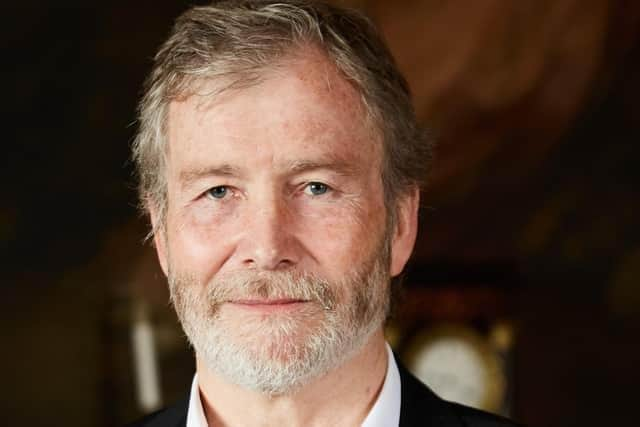Mental Health Awareness Week: ‘The only good thing to come out of the pandemic is mental health is now taken more seriously’
and live on Freeview channel 276
A retired Northampton GP of 30 years and chair at Action for Happiness has spoken out about the importance of taking mental health seriously and beating the stigma.
This Mental Health Awareness Week (May 15 to 21), Dr David Smart hopes those in need will utilise the help, support and resources out there – in taking the first steps to improve their mental wellbeing.
Advertisement
Hide AdAdvertisement
Hide AdDr Smart, who is also the clinical director for General Practice Alliance, said: “The key thing about this week is that it raises awareness of the importance of positive mental health.


“It makes people aware of the services out there and how they can access them, while decreasing the stigma.”
He says stigma makes those suffering feel like they are not justified in feeling the way they do, and this could be rectified by having the confidence to reach out to someone for help.
“Share,” said Dr Smart, who openly shared about his struggles with common mood disorder when he last spoke to this newspaper.
Advertisement
Hide AdAdvertisement
Hide Ad“Every time I shared, it made me realise there were stacks of people around me also suffering.


“One in six of the population battle with their mental health, at least. Everyone has someone else around them in the same boat.
“A problem shared is a problem halved, and we become more accepting and compassionate for ourselves.”
Dr Smart believes the level of taboo and stigma around mental health varies depending on culture – where there is a difference in the ability to share and people become “pushed out and isolated”.
Advertisement
Hide AdAdvertisement
Hide AdHe said: “We’ve still got a long way to go, but it’s good to see more people talking about it.”
When asked what he would say to anyone afraid of taking the first steps to getting help with their mental health, Dr Smart says to reach out to someone you can trust or write it down for yourself.
“It is important to admit to ourselves that we have a problem,” he added.
One thing that helped Dr Smart with his own mental health struggles was having a wellbeing plan, which he believes is essential for everyone.
Advertisement
Hide AdAdvertisement
Hide AdHe said: “We need to take care of ourselves everyday. There’s not a magic cure to mental illness, but create daily habits that you know work for you, explore new things and keep doing them on a regular basis.”
The former GP says nutrition and good gut health, decreasing alcohol intake, regular exercise, practising meditation and his faith, and keeping in touch with friends and family are habits he started and has kept up.
He also believes his standing desk plays a key role in his mental wellbeing.
When asked what lasting impacts the pandemic has had, Dr Smart says “the only good thing to come out of the pandemic is mental health is now taken more seriously”.
Advertisement
Hide AdAdvertisement
Hide AdHe revealed anxiety levels remain higher than prior to the pandemic – particularly among disadvantaged groups, frontline workers, members of the LGBTQ+ community and teens.
“There was always a need for us to take it seriously,” he said. “But now there’s an even bigger need.
“The cost of living crisis has exacerbated it and the biggest thing the government can do is give people a living wage to address the predeterminants of mental health.”
Dr Smart spoke of the direct link between poverty and mental health and said: “If you live in poverty, you have less choice, lower self esteem, and less access to nutrition, exercise and being online.
Advertisement
Hide AdAdvertisement
Hide Ad“And if you have a mental illness, you’re less likely to have a higher functioning job.”
Dr Smart says mental illness is one of the biggest causes of needing time off work, and poor mental health can cause you to drift into poverty and deprivation.
Resources for those looking to seek help for their mental health
For those experiencing mental distress who want to seek support from mental health services, you can call 0800 448 0828 24 hours a day, seven days a week.
The NHS’ psychology therapy service for anyone aged 17 and over, which is open from 9am until 5pm on weekdays, can be reached on 0300 999 1616.
Advertisement
Hide AdAdvertisement
Hide AdYou can access online resources on Action for Happiness, 10 Days of Happiness, Mental Health Northants Collaboration, and Reach Youth Counselling.
Dr Smart advises readers to download the Action for Happiness app, for daily reminders and access to a library of talks with world experts.
Finally, you can create your own wellbeing action plan – which is one of General Practice Alliance’s patient facing online resources.
